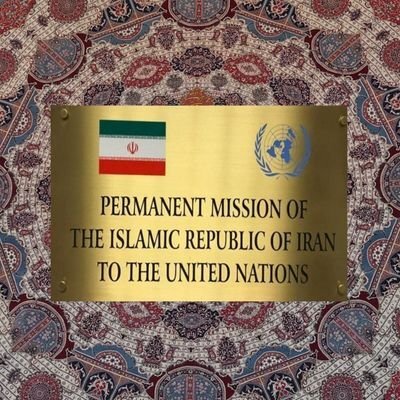
TEHRAN – The Iranian mission to the United Nations said on Tuesday that it is necessary that the United States make a "political decision" to "fully and immediately” honor all its commitments to the 2015 nuclear deal endorsed by UN Security Council Resolution 2231.
President Joe Biden’s predecessor, Donald Trump, quit the nuclear deal, officially known as the Joint Comprehensive Plan of Action (JCPOA), and reimposed sanctions on Iran and added new ones under his “maximum pressure” campaign against Tehran.
As a presidential candidate, Biden had promised to rejoin the nuclear deal if he is elected president. However, since he took the helm at the White House his administration has taken no concrete step to honor the U.S. commitments under the JCPOA.
“No proposal is needed for the U.S. to rejoin the JCPOA. It only requires a political decision by the U.S. to fully and immediately implement all of its obligations under the accord and abide by UNSCR 2231,” the Iranian mission to the UN tweeted.
Tehran’s mission to the UN added, “Iran is in touch with the remaining participants in the #JCPOA on issues.”
The remaining parties to the JCPOA are the three European states of Britain, Germany and France, the European Union, Russia and China.
In a statement on March 24, EU foreign policy chief Josep Borrell, who acts as coordinator of the JCPOA Joint Commission, described the JCPOA as “a masterpiece of diplomacy”.
“The Joint Comprehensive Plan of Action (JCPOA) remains a key achievement of multilateral diplomacy despite existing difficulties. There are difficulties, but despite that, I think that this agreement is a masterpiece of diplomacy,” the statement said, according to eeas.europa.eu.
The tweet by the Iranian mission to the UN followed after Biden administration officials, mindful of the increasingly unfavorable calendar, plan to put forth a new proposal to jump-start the talks as soon as this week, two people familiar with the situation told POLITICO.
The proposal asks Iran to halt some of its nuclear activities, such as work on advanced centrifuges and the enrichment of uranium to 20 percent purity, in exchange for some relief from U.S. economic sanctions, said one of the people, who stressed that the details are still being worked out.
It’s not at all certain that Iran will accept the terms. Earlier this year, Tehran rejected a U.S. proposal it deemed unacceptable, then offered its own idea that Biden’s team declared a non-starter, two people familiar with the situation said.
Still, officials in both countries are aware that if no breakthrough takes place over the next few weeks, little is likely to happen until September at the earliest, and that’s if the deal can be saved at all. The warnings come as progressives pressure Biden to rejoin the deal and as some officials and analysts wonder if Biden is genuine about his stated desire to see the agreement revived.
“Iran is poised to blow through additional nuclear deal restrictions in the next few weeks. This is the crucial time to avoid an escalation of the situation,” said Daryl Kimball, executive director of the Arms Control Association, an organization that has closely tracked nuclear negotiations involving Iran.

No comments:
Post a Comment